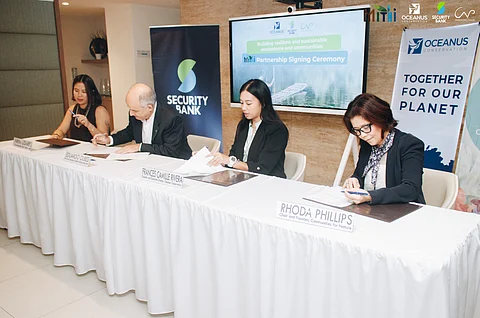Security Bank to restore La Union, Negros Oriental mangroves
Security Bank will be helping regrow mangroves in La Union and Negros Oriental to ensure their coastal communities can draw more income from agriculture and tourism activities while helping the nation mitigate climate change.
The bank said it recently launched the Mangrove-Based Initiatives for Thriving Habitats and Inclusive Communities or MITHI.
The bank partnered with Oceanus Conservation and the United Kingdom-based Communities for Nature to carry out the project.
“MITHI is more than just an environmental program. It’s also a collaborative partnership to empower and enable communities to become active stakeholders in conservation through habitat restoration and the promotion of tourism and other livelihood opportunities,” Security Bank head of sustainability Nikki Lizares said.
MITHI will be implemented in two areas in Aringay in the province of La Union, and in Bais City in Negros Oriental.
Through MITHI, Security Bank and its partner organizations — Communities for Nature and Oceanus Conservation — aim to achieve four goals: spread information in environmental protection through workshops and immersions, revive mangrove fishponds, build up community-led wildlife ecotourism and conservation, and establish a culture of sustainable entrepreneurship.
“By engaging with these communities, we hope to champion and amplify the voices, wisdom, and leadership of those vulnerable few who are most impacted by the climate crisis,” Lizares said.
Having lush mangroves means less harmful climate as their trees absorb and store five times more carbon dioxide than trees on land, a report from National Geographic says.
Apart from higher carbon absorption, mangroves serve as barriers of coastal communities against strong winds and tides and prevent shoreline erosion, ensuring that homes are safer from sea rise.
Various animals for food like shrimps and shellfishes also proliferate due to mangroves as they serve as breeding areas for these creatures.
Through responsible ecotourism by coastal communities, people can enjoy boat tours, bird and wildlife watching, mangrove planting, kayaking, eating seafood and snorkeling.
For example, the World Bank reports Indonesia, which has 20 percent of the world’s mangroves, earns up to $50,000 per hectare per year from mangrove-related goods and activities.


